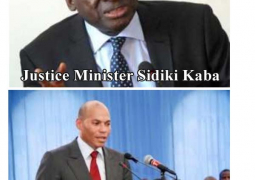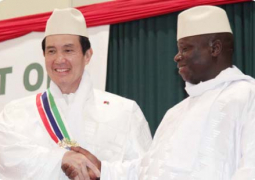Of all the assets a man can have in his day-to-day existence, one of the most important is access to information. It guides armies at times of war; in times of peace, kingdoms are wisely ruled by it. If information is accessible and adequate, the individual will have a better chance to survive and to progress.
Information can be gathered from books, visual and oral communication, from the senses or from reading the daily papers. Whatever the information source, man needs information to know what is happening around him and to utilise what he learns in the best way suited to his needs.
Hopefully, he will also use it in the best interest of the nation, in particular, and humanity in general. But without information man gropes in the dark, and becomes incapable of making informed choices when competing options present themselves.
It is with great sadness, therefore, that we view situations where access to information is deliberately shut down, and the public unfairly deprived of it. If information is to benefit the people, we should keep all our schools and libraries open.
Radio stations should be allowed to operate, and certainly the press, being the most immediate and popular source of information, should never be muffled, suppressed or in any way hampered without very good and clear justification.
Reasons or decisions for closures and the like should be made known to the public as the end consumers of information and, above all, must be fair and unimpeachable.
What we have seen in most part of the African continent is that official information is made available to the public, but given from one perspective only, namely the governments perspective.
From what seems to be the current government policy on the dissemination of official information in most African countries, only a select category of papers and other news media, with potential government leanings perhaps, are allowed unfettered access to official information and invited to the majority of official events and forums.
Except for carrying press releases, most private media houses are habitually left out of actual official functions for reasons unknown. This is unfortunate, because citizens are in effect deprived of getting all the angles to an issue and allowed to draw their own conclusions from them. In the present situation, there seems to be only one angle and one point of view.
Therefore, it can be concluded that what the public is subjected to is indoctrination where the state fails to recognise, and effectively holds sway over, the rights and freedoms of the individual citizen to balanced information.
Finally, it is not clear why some of the private media is not allowed to cover state activities and functions, and we would like to know. We, therefore, appeal to all African governments to look into these issues, and help resolve this patent discrimination against the private press in their respective countries.
While journalists regularly inform the public about the work and development projects of the government in their respective country, it is very unfortunately that most of us do not always have access to the necessary information even to do this.
It is also our duty to inform the public of what is going wrong, and for that we honestly have no apology as that is what our profession requires.
On the home front, with everything being equal, and all protocols observed, we wish to invite President Yahya Jammeh and his government, once more, on behalf of the entire media family, to consider our appeal for greater partnership between government and the private press in the interests of the people and our national development.
Long live democracy! Long live press freedom! Long live The Gambia!
“Information is a source of learning. But unless it is organized, processed, and available to the right people in a format for decision making, it is a burden, not a benefit.”
William Pollard



